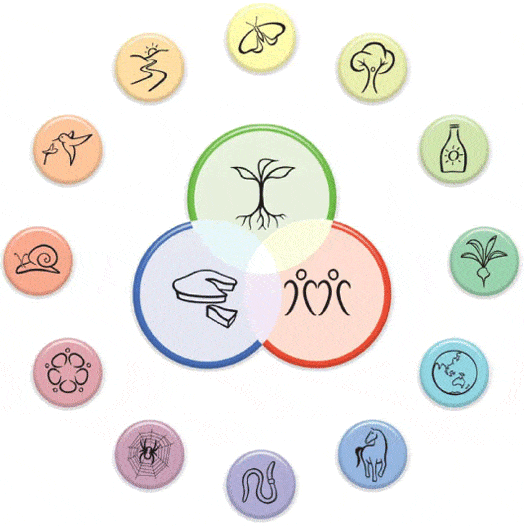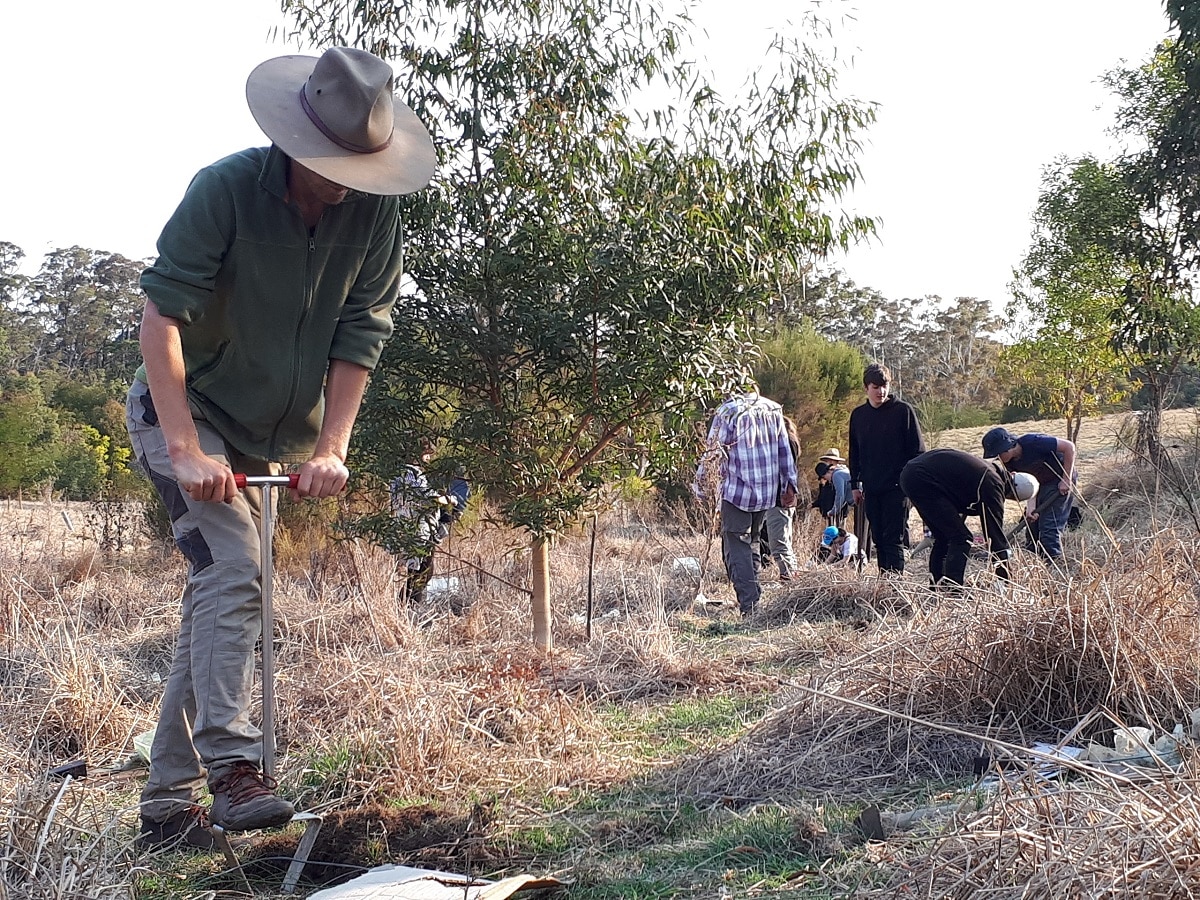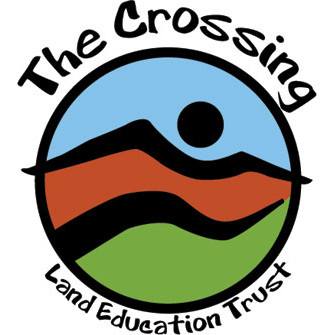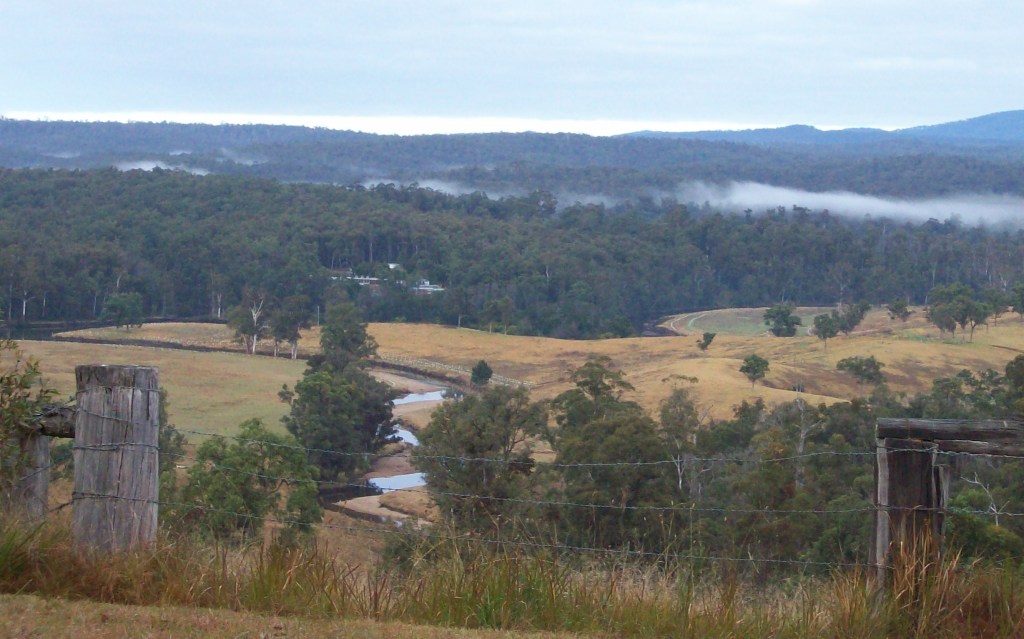Permaculture as Pedagogy: our educational philosophy

Permaculture is so much more than organic gardening! It’s an approach to design that can be used for anything, including education! Our Permaculture pedagogy is organised around the following ideas:
– We help students understand the fundamental connections between and through sustainable systems at the micro level here at The Crossing, to help them better understand the interconnection of systems at the global level. Permaculture pedagogy centres the local but is always concerned with the global.
– We do not offer student a set of instructions on how to live sustainably. Rather, we show them a systems-thinking and designed approach to sustainability that requires a deep knowledge of place. We inspire students to learn about their own place and design their own sustainable solutions that benefit them and their communities
– We believe that each individual plays a role in creating change at the local and global level. At The Crossing, we encourage students to take ownership of their actions and consequences, to engage with our community and the sustainable systems on the property, and we inspire young leaders who are excited to engage in local initiatives back home.
This is the pedagogy that helps us achieve our mission of developing youth leadership in sustainable design!
Permaculture as Pedagogy: evidence-based education
There is is a growing body of research which indicates that appropriate Permaculture experiences can enhance students’ ecoliteracy, science learning, educational engagement, wellbeing, and progess on service projects
Further reading:
Burke, 2017. Permaculture Design as a Pedagogical Resources. https://www.resilience.org/stories/2017-11-08/permaculture-design-as-a-pedagogical-resource/
This article was first written as a proposal for new pedagogy in Norwegian schools. It is updated here in a wider context for regenerative pedagogical design.
Gunderson & O’Day, 2008. Permaculture, A Natural Systems Design Approach For Teaching Sustainability In Higher Education: Pacific University’S B-Street Permaculture Project. In Addressing Global Environmental Security Through Innovative Educational Curricula. https://link.springer.com/chapter/10.1007/978-1-4020-9314-2_16
This paper discusses the integration of Permaculture in a Higher Education setting which developed a “learning laboratory” for students intended to produce “good ecological citizens”.
Lebo, 2012. Toward ecological literacy: A permaculture approach to junior secondary science (PhD thesis). University of Waikato, Hamilton, New Zealand. https://researchcommons.waikato.ac.nz/handle/10289/7392
This dissertation found that “a permaculture approach to junior secondary science can impact positively on students‘ understanding of science and sustainability. It also appeared to impact positively on the science teacher‘s attitude toward including sustainability in his teaching practice, and on his own sustainability learning”.
Leba & Eames, 2015. Cultivating attitudes and trellising learning: A Permaculture approach to science and sustainability education. https://doi.org/10.1017/aee.2015.23
Research from New Zealand which shows that Permaculture education enhances student and teacher scientific literacy, especially when it incorporates field trips to Permaculture sites!
Luna, Dávila, & Reynoso-Morris, 2018. Pedagogy of Permaculture and Food Justice. https://eric.ed.gov/?id=EJ1193673
The authors discuss a international service project for young people informed by Permaculture ethics and principles.
Gough & Moses, 2020. Embedding enquire and the principles of Permaculture in the curriculum. Eton Journal for Innovation and Research in Education. pp.37-38. https://cirl.etoncollege.com/wp-content/uploads/sites/4/2020/11/Issue-4-2.pdf#page=20
The authors argue that Permaculture pedagogies develop students who think creatively, critically, and collaborativly and who take real actions to improve outcomes for other students, their communities, and the planet.

Program links to the Australian Curriculum
At The Crossing, student deep dive into sustainability: one of the cross-curriculum priorities of the Australian Curriculum. In particular, at The Crossing students engage in systems thinking that emphasises the importance of networks of connection both ecologically and socially.
Students can learn about the development of different worldviews and way of living, in particular the “dependence of living things on healthy ecosystems, and [to] value the diversity and social justice… essential for achieving sustainability” (Australian Curriculum, Sustainability v.8.4). In addition, they learn about about transformative actions needed at local, community, and international levels, underpinned by core values, that can improve global social, environmental, and economic outcomes. As a permaculturally-designed outdoor education centre, we embed the core ethics of Earth Care, People Care, and Fair Share across our programs.
These ethics have been recently identified by the Australian Curriculum as crucial for sustainable development, but they have been core to The Crossing for 25 years.


